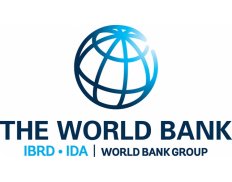Share
Print

Project ID: P144726
Borrower/Bid No: IN-NDMA-70460-CS-QCBS
India - P144726 - National Cyclone Risk Mitigation Project-II - IN-NDMA-70460-CS-QCBS
Country: India
Project Id: P144726
Project Name: National Cyclone Risk Mitigation Project-II
Loan/Credit/TF Info.: IDA-56930
Notice Version No.: 0
General Information
Notice Type | Request for Expression of Interest |
Borrower Bid Reference | IN-NDMA-70460-CS-QCBS |
Bid Description | Consultancy Services for Developing Hydro-meteorological Resilient Action Plans (HmRAP) in Selected Urban Areas in India |
Language of Notice | English |
Deadline for Application Submission Date | 2019/02/28 |
Local Time | 17:00 |
Selected category codes for product to be procured | 77101600-Environmental planning |
Contact Information on Advertisement
Organization/Department | National Disaster Management Authority |
Name | Pradeep Kumar |
Title | Add. Secretary and Project Director (NCRMP II) |
Address | NDMA Bhawan, A-1, Safdarjung Enclave, New Delhi, Delhi 110029 |
City | |
Province/State | |
Postal Code | |
Country | India |
Phone | 26701877 |
Fax | |
Website |
Detailed Information for Advertisement
Request for Expression of Interest (EoI)
INDIA
UNDER WORLD BANK AIDED NCRMP-II OF NATIONAL DISASTER MANAGEMENT AUTHORITY (NDMA)
CREDIT No. IDA-5693-IN
Hiring of Consultant for Developing Hydro-meteorological Resilient Action Plans (HmRAP) in Selected Urban Areas in the Country
Reference No.IN-NDMA-70460-CS-QCBS Date: 24 January, 2019
The Government of India has received financing from the World Bank toward the cost of the National Cyclone Risk Mitigation Project-II and intends to apply part of the proceeds for consultancy services on the subject mentioned above.
2. One of the agreed components under NCRMP-II is about Hydro-meteorological Resilient Action Plans (HmRAP) as a futuristic step and funds have been demarcated for this purpose. Accordingly, PMU, NDMA has now decided to hire a Consultant firm for developing HmRAP in select urban areas. The HmRAP would be a key document in guiding decision-makers to improve their city’s resilience and reduce risks to hydromet related hazards, with a critical focus on incorporating hydromet information into planning and service delivery. The HmRAP would identify specific issues and priorities tailored to the context of the specific urban area and propose key actions to be implemented at short, medium and long term for strengthening the hydromet information base and improving the resilience of urban services delivery. The plans would also become the basis for developing investment frameworks for climate resilient cities.
3. Hydromet hazards such as flooding, thunderstorms, poor air quality and others have significant impact on urban areas in India, causing both low level chronic damages, for example during the monsoons, and also resulting in major havoc due to extreme events. They have received insufficient attention but NDMA and cities are increasingly aware of the risks and need to plan specific efforts to deal with such hazards, fueled by the frequency of such events.
4. Urban flooding is significantly different from rural flooding as urbanization leads to developed catchments which increases the flood peaks from 1.8 to 8 times and flood volumes by upto 6 times. Consequently, flooding occurs very quickly due to faster flow times, sometimes in a matter of minutes.
5.Urban areas are centres of economic activities with vital infrastructure which needs to be protected 24x7 and they may not have only local but global implications. They are also densely populated and people living in vulnerable areas suffer loss of life, damage to property and disruptions in transport and power, thus, bringing life to a grinding halt. Even the secondary effects of possible epidemics and exposure to infections takes further toll in terms of loss of livelihood and human suffering.
6.The objective of the consultancy is to develop resilient action plans in order to strengthen the capacity of National/ State and ULB entities to effectively plan for and respond to significant hydromet hazards/extreme events and climate change affecting urban areas.
7.This also includes to support participating ULBs in preparing resilience actions plans that will assess hydro-meteorological exposure, risks and vulnerability of urban assets and communities, identify current and proposed adaptive and mitigative actions, and develop action plans that include recommendations for strengthening capacity and investment outline for investing in resilient solutions. A key focus of the consultancy would be to assess the availability of weather, water and climate information available at the city level, assess gaps and the potential for developing urban oriented hydromet services using existing information, and develop a plan to strengthen the capacity for improving such service delivery to critical weather dependent sectors and users.
8.The consultancy will target six selected second tier cities and will include a strong technical analysis and consultative process as a basis for the development of the proposed action plans.
9.The scope of work and tasks of the Consultant for each city will be as follows:-
10. PMU, NDMA will help in getting data from other Government Departments, if required. However, the Consultant will have to interact with all stakeholders.
11. The Terms of Reference (ToR) is available at www.ncrmp.gov.in , NDMA website www.ndma.gov.in and https://eprocure.gov.in/epublish/app for further details.
12. The Project Monitoring Unit (PMU), NDMA now invites EoI from eligible consulting firms for providing the services. Interested Consultants should provide information demonstrating they have the required qualifications and relevant experience to perform the Services (in form of brochures, description of similar assignments, past experience in similar services, availability of appropriate skills among staff etc.). The shortlisting criteria are:-
iii. The Consulting firms should demonstrate that they have enough capacity (including Personnel) in handling similar assignment by providing organizational structure and details of technical resource.
13. Expressions of interest (EOI) should contain all relevant information but not limited to:
The attention of interested Consultants is drawn to paragraph 1.9 of the World Bank’s Guidelines: Selection and Employment of Consultants [under IBRD Loans and IDA Credits & Grants] by World Bank Borrowers January 2011 (“Consultant
